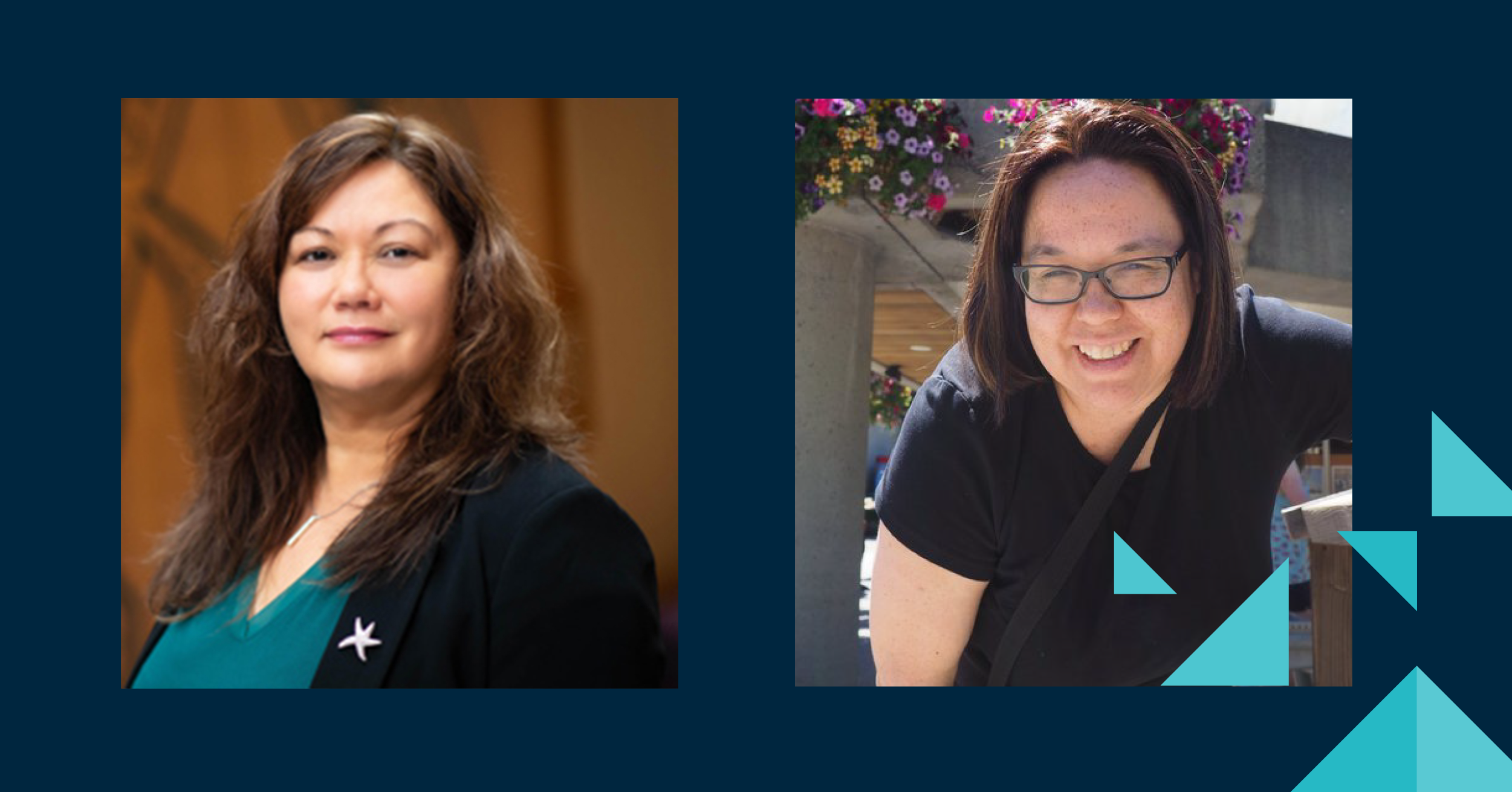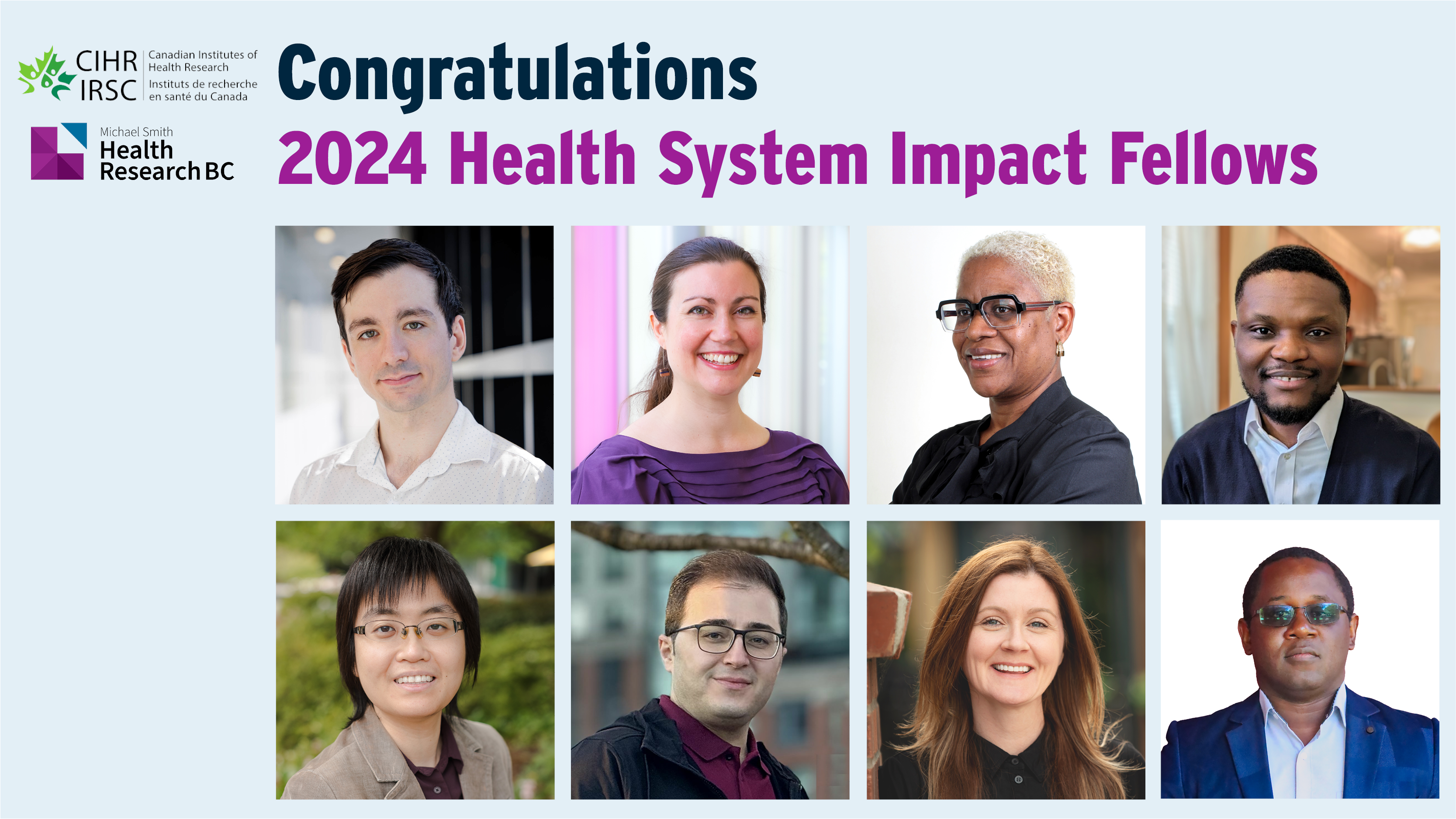Indigenous Cultural Safety and Humility Workshop: A safe place to question, learn and unlearn together
3 March 2022

Photo caption: Namaste Marsden, co-chair of REBC’s Advisory Council and Angie Bain, member of REBC’s Advisory Council
Namaste Marsden and Angie Bain have grown up witnessing systemic racism towards their family and community members. Their careers have spanned working with their own and other Indigenous communities as historical researchers, advisors, and trainers on various engagement projects and partnerships to benefit Indigenous people and protect their rights. They have also been relentless advocates of sharing knowledge about cultural safety and humility, and helping individuals gain practical tips and tools about how to implement ethical research in their work.
Their efforts have manifested into the Indigenous Cultural Safety and Humility Workshop, which although convened by Research Ethics BC (REBC), part of Health Research BC, is led and facilitated by Indigenous people from across BC and western Canada. The workshop is the third such event being convened by REBC and will be held on March 3 for research ethics board members and administrators.
“This work, to educate more people about cultural safety and humility, is very important,” says Namaste who is from the Wilp Gamlaxyeltxw, Lax Ganeda (Frog Clan) and is the co-chair of REBC’s Advisory Council. “We need a lot more of it and we need it at the provincial and institutional levels to begin to move from racism to rights recognition.”
Angie, a member of REBC’s Advisory Council, agrees. She also reminds us that while people want to do things the right way to engage and build relationships with Indigenous communities, the difficulty often lies in the implementation.
“It’s a big challenge to get everyone to understand where we are heading and to head in the right direction together. But opportunities like this workshop will help people have those difficult conversations to move good intentions towards implementation,” says Angie who is Nlaka’pamux (Ing-thla-cap-muh) from the Lower Nicola Indian Band of Merritt, BC.
Angie believes this workshop and similar events, while specific moments in time, will have long-lasting impacts. “We can’t think of things in terms of this project or that project. We must consider the whole of the impact at this moment in time and the work we are doing together today will have on future generations.”
The Indigenous Cultural Safety and Humility Workshop will address some significant, broad principles including consideration of the three Rs (Respect. Responsibilities. Relationships.), ownership, control, access, and possession (OCAP®), and what those mean to different communities. “People want to be very respectful in this relationship that we are trying to build together, but they don’t know what’s respectful for each of the Nations, so we need practical ways to help each other,” says Angie.
Having played a significant role in harmonizing ethics in the province, according to Namaste and Angie REBC is well positioned to lead educational efforts on this journey in collaboration with Indigenous communities.
“REBC played a huge role in harmonizing ethics in the province,” says Namaste. “The way harmonized ethics has evolved is very coordinated. There is a lot of logic to it. There is an opportunity with Indigenous ethics and the need to do something proactive so that people can have those discussions together. That’s why REBC needs to be at the forefront of these discussions.”
With recent events and movements like Black Lives Matter and revelations of past atrocities on Indigenous people and other marginalized groups, it’s more important than ever to hear authentic voices to show why cultural safety truly matters. Namaste and Angie believe it’s crucial for this workshop to be Indigenous led because for people to really understand colonial histories and their impacts it must come from the communities themselves.
“Others can’t speak for us. We must speak for ourselves,” says Angie. “That saying ‘Nothing about us without us’ is so true when you work with Indigenous communities.”
Namaste and Angie are encouraged by the demonstrated willingness from people involved in research ethics to learn more about Indigenous communities and work with them in respectful and inclusive ways. But they both emphasize that this is a journey that will take ongoing commitment to listen, learn, understand, reflect, and act.
“One of the tendencies we have in addressing historical wrongs is that we think we can do it once and it’s done,” says Namaste. “There is a long way to go. We are going to need more of this, and we can’t assume that one or two or four [of these workshops] will suffice. This is a journey.”
Finally, when asked what they would say to someone involved in research ethics but is uncertain about attending the workshop, Namaste and Angie reiterate that the workshop is a safe place to learn what you don’t know, a safe place to know what questions to start asking, and a safe place to have your questions answered.
And that is at the very heart of cultural safety and humility, which is an acknowledgement that you don’t know what you don’t know, to seek out learning, and listen.
Because the other option is unsustainable. “When we choose to stay in ignorance about anything, we choose to stay in risk,” concludes Namaste.
To learn more about the agenda for the upcoming Indigenous Cultural Safety and Humility Workshop and to register:





